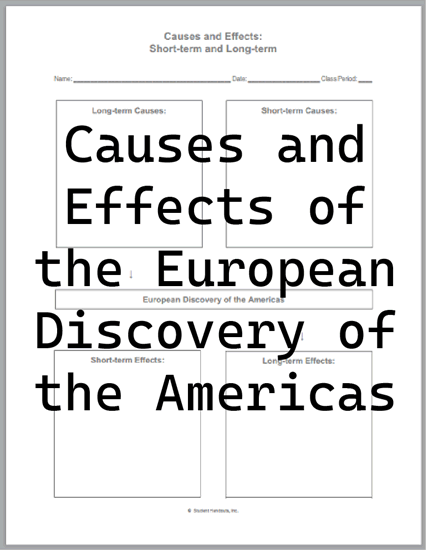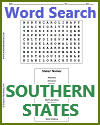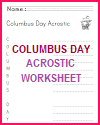| Causes and Effects of the European Discovery of the Americas - DIY Infographic Worksheet |
|---|
| www.studenthandouts.com > World History > Age of Exploration > Age of Exploration Worksheets |
| Students are asked to list the short- and long-term causes and effects of the modern (late 1400s-early 1500s) European discovery of the Americas. |
|---|
 |  |
|---|
| Click here to print this DIY infographic worksheet (PDF file). Answers will vary. The European discovery of the Americas had profound and far-reaching causes and effects.
Causes:
|
|---|
| www.studenthandouts.com > World History > Age of Exploration > Age of Exploration Worksheets |










